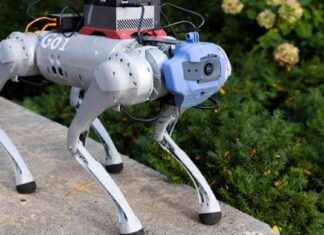Thunderbolt on the Seine, literally and figuratively. The storms of the last few days, in the Paris region, have led to an increase in pollution in the river and made swimming impossible. As a result, World Aquatics, the international swimming federation, announced on Sunday August 6 at 5 a.m. the cancellation of the open water swimming test events scheduled for the same day on the Seine.
“Water quality remains below acceptable standards to safeguard the health of athletes,” World Aquatics said in a statement.
Saturday’s women’s race had already been postponed for twenty-four hours and Friday morning’s practice had already been canceled for the same reasons. It rained from July 20 to August 2 in Paris “four times more than the average over the last twenty years” over the same period, according to the prefecture of the Ile-de-France region, which reported Thursday afternoon of a “temporary degradation of water quality”.
The cancellation of the competition is a blow for the organizers of Paris 2024, who intended to get ready for the Olympic deadline. In its press release on Sunday morning, the international federation specifies that it has understood that “future infrastructures will significantly improve the quality of the water in the Seine between now and the Olympic Games, next year”.
” Emergency plan “
However, the body issues a warning: “Based on the experience of this weekend, it is clear that it will be necessary to work in the future with the organizers of Paris 2024 and the local authorities to ensure that a contingency plan is in place next year. »
The 2024 Olympic event will be identical to that which was envisaged this, with ten kilometers swum in several loops between the Alexandre III bridge and the Alma bridge.
The cancellation is also a setback for the Paris City Hall, which has made swimming in the Seine a strong focus of its “legacy” section of the Olympics with its citizens. Objective ? Make swimming possible at three points along the Seine. Although nearly 1.4 billion euros have already been invested in this direction, not all the basins intended to capture waste river water have yet been delivered. At the beginning of July, the municipality had thus declared, during a progress report, that nearly 92% of the measurements carried out in the Seine since June 1 had proved to be “good” or “excellent”. A statistic challenged by the weather of the last few days. The heavy rains brought wastewater to the river and increased the concentration of Escherichia coli bacteria.
It will therefore be necessary to wait before athletes from all over the world swim the crawl between the Alma bridge and the Alexandre III bridge. A false start in the form of a wet firecracker which has the merit of illustrating the challenges that await the authorities in view of Paris 2024.
If the weather were to play spoilsport again next summer, the organizers had long planned to be able to move the Olympic events by a few days. An option that had not been put forward for this round of the World Cup.
A next test event, that of triathlon and paratriathlon, which includes a swimming part in the Seine, is planned in the center of Paris from August 17 to 20. The Paris Olympics Organizing Committee said in a separate statement on Sunday morning that “the quality of the water will continue to be carefully monitored, in the confident hope – based on current weather forecasts – that top athletes level can participate in [this] competition in the Seine”.







